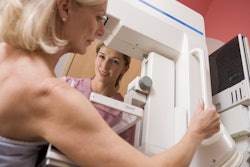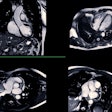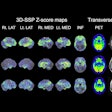Dear AuntMinnie Member,
Legislation introduced recently in North Carolina would require OEMs of medical imaging and radiation therapy equipment to provide product owners and independent service providers with what they need to service the equipment. Although popular among biomedical technicians and clinical engineers, the right-to-repair bill is opposed by industry groups. Our coverage was the most highly viewed story last week on AuntMinnie.
Low-dose CT lung cancer screening has demonstrated value among high-risk individuals with a long history of smoking. But nonsmokers may also benefit, according to our second-most highly viewed story last week. Interestingly, the authors found a comparable lung cancer detection rate among people without high-risk factors.
A recent survey reported that approximately 70% of women approved of the use of AI as a second reader for their screening mammogram. However, most did not accept the use of the technology for standalone interpretation.
Industry trade organization Advanced Medical Technology Association (AdvaMed) has released a new AI Policy Roadmap in hopes of steering government policy toward fewer data restrictions and other goals for AI. Click here for our coverage.
A new report from the American Cancer Society found a steady decline in overall deaths from cancer among both men and women. However, new cancer diagnoses for women have been increasing slightly every year, according to the society.
Other articles generating substantial page views last week included our coverage of research on how PET scans can predict outcomes in patients undergoing CAR-T cell therapy and how the combination of amyloid PET and FDG-PET scans could predict short-term progression from mild cognitive impairment to Alzheimer’s disease.
See below for all of our top stories of the week.
- Right-to-repair battle heats up in North Carolina
- Nonsmokers also benefit from lung cancer screening
- More women welcome AI assistance for mammography exams
- Health data restrictions plague medtech AI developers
- Report: Cancer incidence rates trending upward for women
- Ultrasound-based model finds endometrial malignancies
- PET scans predict outcomes for patients undergoing CAR-T cell therapy
- VA finds lung cancer screening communication aberrations in Kansas
- Combined PET scans predict the progression of Alzheimer’s disease
- Quantitative CT textures of the lung help assess COPD severity
- Deep-learning technique boosts diagnostic ability of fast knee MRI
- PET scans identify people at early risk for cognitive decline
- Lung POCUS helps diagnose dyspnea in emergency departments
- AI produces synthetic 3T MR images from portable scans
Erik L. Ridley
Editor in Chief
AuntMinnie.com



















